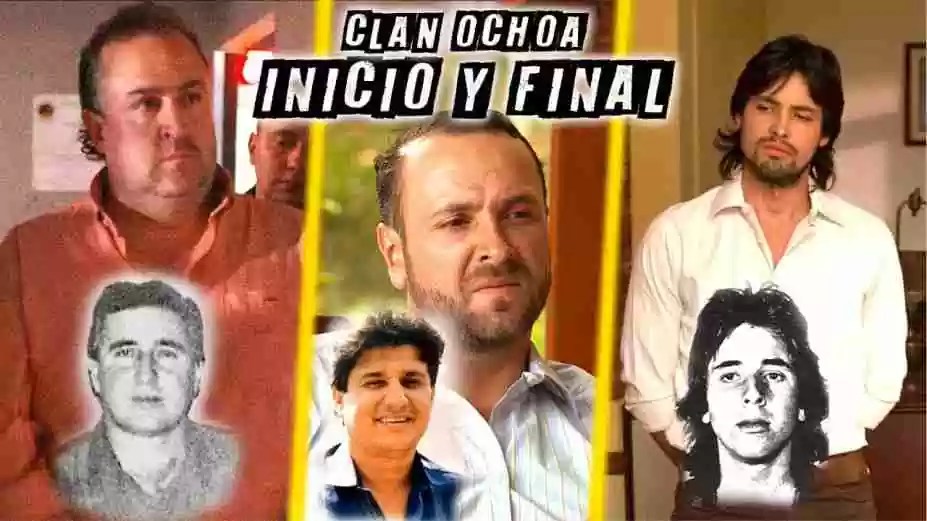Julio Motoa: The Untold Story Of Pablo Escobar's Right-Hand Man
The life of Julio Motoa is intricately linked with the notorious Colombian drug lord, Pablo Escobar. This article delves into the complex relationship between these two figures, exploring Motoa's role within Escobar's empire and the impact it had on the drug trade in Colombia. From his early life to his eventual rise as one of Escobar's most trusted associates, Motoa's story is one filled with intrigue, danger, and complexity.
Understanding the dynamics of the Medellín Cartel and the influence of individuals like Julio Motoa is crucial for anyone interested in the history of drug trafficking in Colombia. This article not only sheds light on Motoa’s life but also examines the broader context of Escobar's reign and its implications for Colombian society.
As we journey through the life of Julio Motoa, we will uncover the various facets of his character, his contributions to the cartel, and the eventual downfall that came with the rise of law enforcement efforts against drug trafficking. Join us as we explore this compelling narrative that intertwines with one of the most infamous figures in modern history.
Table of Contents
- 1. Biography of Julio Motoa
- 2. Early Life and Background
- 3. The Relationship with Pablo Escobar
- 4. Role in the Medellín Cartel
- 5. Arrest and Downfall
- 6. Impact on the Drug Trade
- 7. Legacy of Julio Motoa
- 8. Conclusion
1. Biography of Julio Motoa
Julio Motoa was born in Colombia during the tumultuous era of the late 20th century. His childhood was marked by the socio-political unrest that characterized the country during this period. Motoa's entry into the world of drug trafficking was influenced by the environment around him, leading him to become involved with one of the most infamous drug lords in history.
| Full Name | Julio Motoa |
|---|---|
| Date of Birth | Unknown |
| Nationality | Colombian |
| Occupation | Drug Trafficker |
| Affiliation | Medellín Cartel |
2. Early Life and Background
Growing up in Colombia, Julio Motoa faced many challenges that shaped his character and aspirations. The political instability and the rise of drug cartels influenced his early years, pushing him towards a life that would eventually intertwine with crime and power.
Key Factors Influencing His Early Life
- Socio-political unrest in Colombia
- Influence of local gangs and drug lords
- Poverty and lack of opportunities
3. The Relationship with Pablo Escobar
The bond between Julio Motoa and Pablo Escobar was built on mutual interests and trust. Motoa quickly gained Escobar's confidence, becoming one of his closest allies in the drug trade. This relationship was pivotal for both men as they navigated the treacherous waters of the drug industry.
Development of Their Partnership
- Initial encounters and shared interests
- Trust-building through shared experiences
- Mutual benefits in the drug business
4. Role in the Medellín Cartel
As a key figure within the Medellín Cartel, Julio Motoa played a significant role in the operations and expansion of the cartel's influence. He was involved in various aspects of the drug trade, from production to distribution, cementing his position as a vital member of the organization.
Responsibilities within the Cartel
- Overseeing drug production processes
- Coordinating logistics and distribution networks
- Managing relationships with other cartel members
5. Arrest and Downfall
Despite his success within the cartel, the law eventually caught up with Julio Motoa. His arrest marked a significant turning point, not only for him but also for the Medellín Cartel, which was facing increasing pressure from law enforcement agencies.
Events Leading to His Arrest
- Increased law enforcement activity against drug trafficking
- Betrayals and internal conflicts within the cartel
- Escobar's eventual downfall impacting all associates
6. Impact on the Drug Trade
Julio Motoa's involvement in the drug trade left a lasting impact on Colombia and the global drug market. His operations contributed to the rise of the Medellín Cartel as a dominant force in the cocaine trade, influencing drug trafficking patterns for years to come.
Significant Contributions
- Expansion of cocaine production and distribution
- Influence on international drug trafficking networks
- Impact on Colombian society and economy
7. Legacy of Julio Motoa
The legacy of Julio Motoa is complex, reflecting the dualities of his life as both a criminal and a significant player in the drug trade. While his actions contributed to the suffering of many, they also highlight the broader issues of poverty and violence in Colombia.
Contemporary Perspectives
- Reassessment of his role in the Medellín Cartel
- Impact on future generations of drug traffickers
- Continuing influence of the Medellín Cartel legacy
8. Conclusion
In conclusion, Julio Motoa's life story is a testament to the complexities of the drug trade and the individuals involved in it. From his early life to his rise within the Medellín Cartel, Motoa's journey is intertwined with that of Pablo Escobar, illustrating the intricate web of relationships in the world of drug trafficking. We invite readers to reflect on the broader implications of these stories and engage with the ongoing discussions surrounding drug trade issues.
We encourage you to share your thoughts in the comments below and explore other articles on our site to gain a deeper understanding of this fascinating yet troubling subject.
Thank you for reading, and we hope to see you back here for more insightful content!
Article Recommendations
- Exploring The Life And Career Of Laypa Jenner A Rising Star In The Entertainment Industry
- Vicente Fernandez Wife A Deep Dive Into Their Love Story
- Rory Philip Mccann The Life And Career Of A Versatile Actor

:quality(75)/cloudfront-us-east-1.images.arcpublishing.com/elcomercio/SY4FQUPJNRCU7OFGYYYEXH66WA.jpg)
